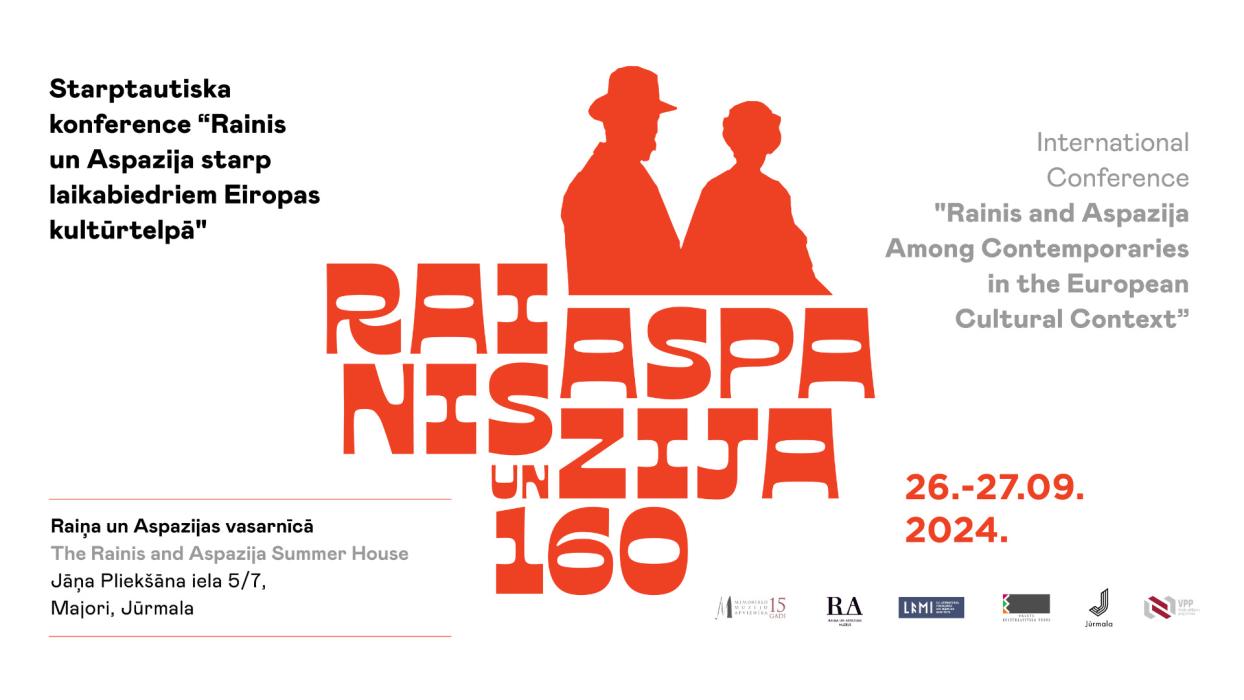The conference “Rainis and Aspazija among their Contemporaries in the European Cultural Space” will take place

In anticipation of the 160th anniversary year of Rainis and Aspazija, on 26–27 September an international, interdisciplinary scholarly conference “Rainis and Aspazija among their Contemporaries in the European Cultural Space” will take place at the Rainis and Aspazija Summer House (Jānis Pliekšāns Street 5/7, Jūrmala).
Rainis and Aspazija were writers and socio-political figures of European and global significance, who advocated for human rights, democracy, the idea of a national state, and a united Europe. The conference topics will include: Rainis’s and Aspazija’s ideas in the context of their time; their connections with significant personalities at the turn of the 19th–20th centuries, their ideas and works; intellectual movements in Latvia and elsewhere in Europe during their lifetime, including their intersections and development; issues of women writers and women’s rights; the self-image of these figures and their public perception over time; the role of the modern personality museum in preserving and transmitting the memory of such figures; and creative partnerships in European countries.
Participants will include humanities researchers and museum representatives such as Kristiāna Ābele, Benedikts Kalnačs, Zita Kārkla, Kārlis Vērdiņš, Jānis Zālītis, among others, as well as guests from Lithuania, Estonia, Slovenia, and Finland. Plenary speakers will be Gundega Grīnuma, Vita Matīsa, Viola Parente-Čapkova (Finland), and Marijan Dović (Slovenia). On 26 September the working language of the conference will be English, and on 27 September – Latvian.
The conference will conclude with a discussion “Figures of the Past and the Modern Individual”, moderated by Raimonds Briedis, with participants Inga Ābele, Māra Grudule, Arnis Koroševskis, Katrīna Kūkoja, and Mārtiņš Mintaurs.
The conference is organised by the Association of Memorial Museums, the Rainis and Aspazija Museum, and the Institute of Literature, Folklore and Art of the University of Latvia.
Supported by: State Culture Capital Foundation, Jūrmala City Municipality, the Association “Switzerland–Latvia”, and the State Research Programme project “Narrative, Form and Voice: The Rootedness of Literature in Culture and Society” (No. VPP-LETONIKA-2022/3-0003).